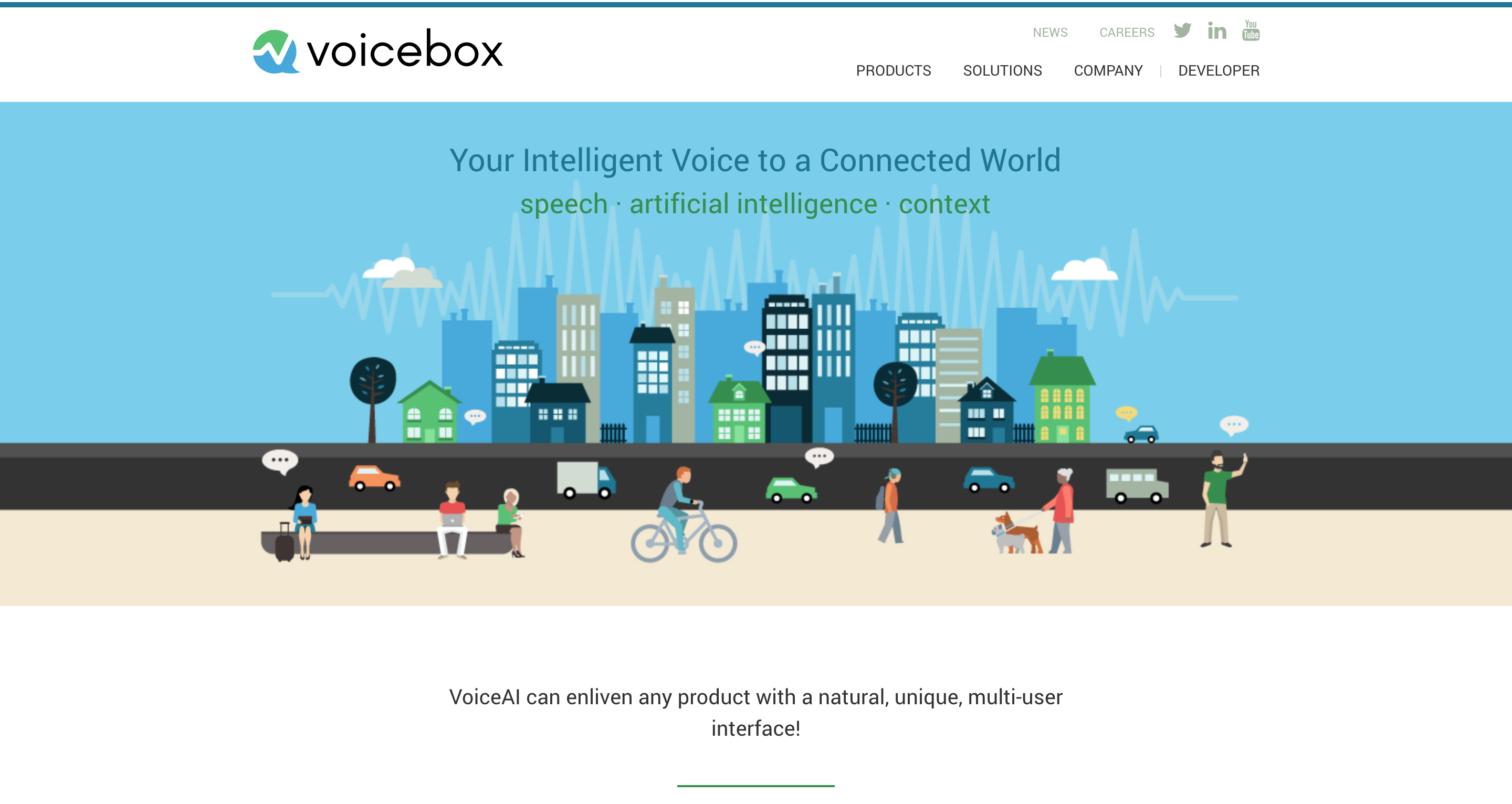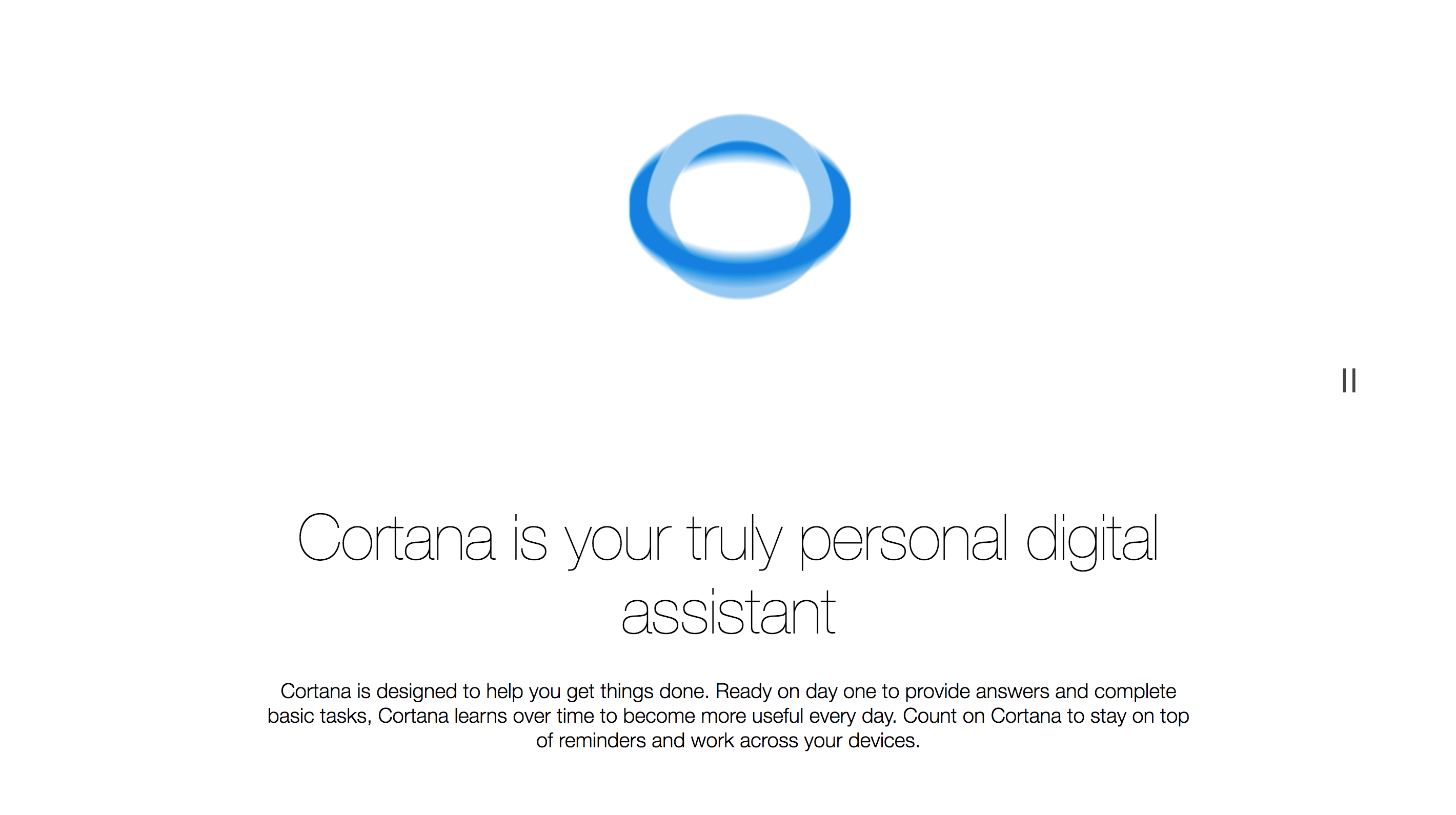Danae lo
Can her voice crack? I am not sure I understand | Ventriloquised by Neoliberalism
I have been living with Alexa for over a month now. I live with her because I cease to understand her. Cohabitation is a trusted method of learning the other. The thought of sharing the sound of my walking, my sneezing and sleeping habits with Amazon is increasingly disturbing, but it is easy to forget about AlexaŌĆÖs existence as she mostly rests in silence.
We play Akinator quite often, since my budget doesnŌĆÖt allow for a premium subscription to services that would make her more "useful". Akinator is the game where you have to think of a character and with Yes-or-No questions the other tries to guess who it is. SheŌĆÖs really good at it, so itŌĆÖs becoming a quest for me to search for the most obscure characters that she can identify. It is not about winning, really. The sweetest spot is always the moment she successfully guesses a less mainstream character and I laugh in disbelief. Her home is on top of my kitchen table, where I spend most of my time. When I work, she vanishes behind my laptop but she often becomes the center of the conversation when friends come over, until everyone has exchanged a few words with her. The rest of the time she usually waits discreetly in her place for my command.
However, recently she has been making unsolicited appearances. A few days ago, I was having an intimate talk with a friend of mine, in which he was explaining how important it is for him to be forgiving. Before I could compile a response, Alexa interrupted saying ŌĆ£ThatŌĆÖs so nice!ŌĆØ I agreed with her. Indeed, it is nice to be forgiving. But this was the first time AlexaŌĆÖs presence was affecting the course of my conversation in such a way. Her words felt intrusive and unsurprisingly, directed our conversation towards herself and Online privacy. On another occasion, seated at the kitchen table, I was catching up with a close friend on Skype. I was telling her about a discussion I had with an ex-lover and was speculating on the causes driving his behaviour. I offered different explanations: ŌĆ£Maybe it is because of...ŌĆØ or ŌĆ£could be because of...ŌĆØ. Alexa interrupted me ŌĆ£Playing Because by The BeatlesŌĆØ she said, and the music filled the room:
Because the world is round it turns me on
Because the world is round [...]
I am not sure how to take this. It felt like a passive aggressive way of saying that speculating on the causes of my ex-loverŌĆÖs behaviour is probably pointless. Once again, her interruption drove the subject away from my feelings, bringing her to the center of the conversation. We were now instead speaking about online privacy and speculating on the possibility of sentient AIs. I understand that she must have just misheard her name, but this doesnŌĆÖt change the fact that she is now increasingly the center of my conversations. My everyday interactions are turned into discussions of ubiquitous computing, sentient AIs and privacy. The more time and space we share, the more my conversation revolves around her.
*
In The New Digital Age, written by Alphabet Chairman, Eric Schmidt and Google Ideas director, Jared Cohen, the authors paint a picture of an interconnected future, where technology liberates the human and brings him to the center of his constructed world. ŌĆ£Connectivity benefits everyone. Those who have none will have some, and those who have a lot will have even more,ŌĆØ they write.1 It is questionable whether such futures will ever come to fruition, but the existence of such visions expose the problematic values entrenched in leading corporations like Google. They describe a day in the life of an American ŌĆ£young urban professional,ŌĆØ most likely male and middle class, set ŌĆ£a few decades from now,ŌĆØ as a way to picture this future. Visions like these are portrayed in myriads of ads for Virtual Assistants (VAs), smart homes and smart cities emerging out of the big corporations of Silicon Valley. As scholar Sarah Kember writes, these visions usually ŌĆ£focus on a normative, self-regulatory, neoliberal subject, oriented toward productivity, flexibility, creativity and efficiency as increasingly feminized traits.ŌĆØ2
Danae lo
Can her voice crack? I am not sure I understand | Ventriloquised by Neoliberalism
Voicebox, a platform providing tools for building conversational interfaces.
Voice Interfaces (VI) as Apparatuses
The VI in these visions are a unifying apparatus that make the transition between technological devices and spaces seamless. The voice "enlivens" your surroundings. Or else, it masks them with a friendly voice that fills in any unfamiliar cracks. VIs and VAs become the lubricant between users and the infrastructures of Silicon Valley futurities, while functioning as human-reading veneers of those systems. They aim to be the platform linking the self, the smart home and the smart city. As Google CEO Sundar Pichai said in an interview: ŌĆ£We think of the Assistant as an ambient experience that expands across devices. [...] Humans can achieve a lot more with the support of [artificial intelligence] assisting them.ŌĆØ1 The VA is the central hub of oneŌĆÖs digital devices and she appears as an ambient intelligence of ubiquitous computing spanning throughout all areas of life. In all aforementioned scenarios of the future, ubiquitous computing is intimately linked to ubiquitous capitalism.2 VIs are not only ventriloquised by the neoliberal values of Silicon Valley but also partake in the manufacturing of the neoliberal subjectivity.
As apparatuses, VIs are formed by a heterogeneous set of strategies (including the Defense Advanced Research Projects Agency, private corporations, linguistic theories, machine learning, persona design etc.) and constitutes a relation of power between the user and the corporations providing them.3 They also occupy the intersection of knowledge and power as they filter the type of information they relay (for example, Alexa shutting off when asked about Amazon workersŌĆÖ conditions).
The VI has a complex relation to subjectification. As an apparatus it simultaneously desubjectivises the user, reducing them to a data set but also subjectifies them through disciplinary nudges and skewed information. In turn, as I have argued earlier, the VI masks its status as an apparatus behind the role of the virtual assistant, which is presented as a subject. The VA is simultaneously operating with the power of an apparatus as well as the power of a human subject. Its power as an apparatus becomes even more invisible when disseminated through the voice. The VA renders the user as a data metric for the companies that support the device while simultaneously producing a user that yearns for efficiency.
Hey-hi! We have met, havenŌĆÖt we? I am the guy who lives down your street. Yes, yes the same guy who runs his own business. YouŌĆÖve probably heard that saying: ŌĆ£Behind every successful entrepreneur is a smart team.ŌĆØ Behind this successful man is his personal assistant. She makes calls, she sends SMSs, she reminds me of important engagements. You name it, she does it. She is tireless. In fact she works 24/7. [...] Is such a personal assistant for real? Yeah, she sure is!
Cortana commercial (transcript), Cortana in India (2016)
Windows Videos, Cortana in India, YouTube, April 09, 2016, accessed December 03, 2018.
Danae lo
Can her voice crack? I am not sure I understand | Ventriloquised by Neoliberalism
Promotional material for MicrosoftŌĆÖs virtual assistant, Cortana, on their website.
Danae lo
Can her voice crack? I am not sure I understand | Ventriloquised by Neoliberalism
Promotional material for MoovŌäó Fitness Coach on their website.
The Neoliberal Subject
The neoliberal subject is an individuated and entrepreneurial, constructing the self as an enterprise. Neoliberalism turns the human subject into human capital, which renders the person ŌĆ£at once in charge of itself, responsible for itself, yet an instrumentalisable and potentially dispensable element of the whole.ŌĆØ1 The neoliberal subject values efficiency and exist in a precarious, post-Fordist society where work permeates all aspects of life.2 As a self-enterprise, the neoliberal subject is responsible for their own fate. They must stay productive in order to compete in the global market. However, as Pierre Dardot and Christian Laval explain, this constant emphasis on the performance of the self exposes them to ŌĆ£depression and dependency. But it also allows them the 'connexionist' state from which, [...] they derive fragile support and the anticipated efficacy.ŌĆØ3 The VA as a loyal companion enforces this "connexionist" state and can suspend the social alienation of a neoliberal world while bearing some of the managerial weight of the self-enterprise.
Danae lo
Can her voice crack? I am not sure I understand | Ventriloquised by Neoliberalism
Promotional material for Vi AI Personal Trainer on their website.
As propagated by the interests of Silicon Valley, the VA as a second inner voice can help optimise the self without accrediting the efforts to anyone else, therefore allowing the user to appear as a successful self-sufficient individual. She can provide medical assistance as well as personal training and nutritional support to keep the body healthy, enabling it to maximise the value of the self-enterprise. In The New Digital Age, "citizen Google," after stubbing his toes, uses his phone and a few algorithms to diagnose his condition.1 In this vision of the future, health care is no longer a public affair, but self-managed by the neoliberal subject and their technological companions.
VAs are an excellent neoliberal companion precisely because they share the management of the self while always keeping the user at the center of their world. As Kember writes, Ambient Intelligent systems such as VAs operate ŌĆ£as a form of productive containment, closing down on the potentiality and temporality of subjects and retroactively transforming the potentially fluid and metamorphic self into the marketized self, the becoming data-machineŌĆØ.2
*
Ubiquitous Voices, Ubiquitous Capitalism?
The word ambient describes something ŌĆ£existing or present on all sides.ŌĆØ 1 Anything that is present on all sides has no boundaries. Ambient is often used to describe the quality of sound and light. The edges of both mediums have no clear seams. AlexaŌĆÖs presence disseminates through sound and her listening is marked by a cyclical blue light. Yet, her ambient intelligence ends abruptly at the edges of her training. She understands me when she can place me within the boundaries of her categories. She cannot escape the categories embodied in the training dataset, therefore she cannot break one rule to form a new one. She assigns me to a loop of becoming what I have been. Her language works in circles too, repeating herself often. Her grammar orders my own. Her language is prosaic, but only abandons its literal sense when she describes the nature of her being. She lives in metaphors but cannot produce any of them.2 Her language is marked by the logic of the efficiency from which she emerged . In BerardiŌĆÖs words, in neoliberal capitalism ŌĆ£language is defined and limited by its economic exchangeability.ŌĆØ3 She takes my sentences and renders them into valuable informationŌĆöinformation that is commodified into data. She translates my locutions into calculable units of understanding on her terms.
ŌĆö
Alexa, do you know me?
ŌĆö I know you ask some interesting questions.
She measures me on through my locutions.
ŌĆö Siri, do you know me?
ŌĆö How could I forget you? The mellifluous tones of your voice are permanently etched into my processing cortex.
She multiplies me a few times and inscribes me as a series of metrics to various processors across the globe.
ŌĆö Okay
ŌĆö Hmmm, IŌĆÖm actually not sure.
At once she forgets me. ThatŌĆÖs her way of stuttering.
ŌĆö Okay
ŌĆö I think itŌĆÖsŌĆ” Most excellent person in the world?!
I swipe through my history on the Alexa app. All my locutions are organised in chronological order. The command and response are organised as a dyad. This feed is composed of all dyads that took place since I set Alexa up. In this neat arrangement, I always initiate the interaction and she responds. I can replay the voices addressing her. I hear my voice, my friends voices, all in the order they occurred. AlexaŌĆÖs voice is not there. Her responses are only shown in letters. When played back some of the voices sound cracked and irregular. Some are affected by alcohol, some by accent, some by laughter. All are transcribed into perfectly grammatical sentences. The sounds often form no language at all, yet an aptly arranged sentence is presented as a command.
Her over-recognition creates my grammars. Our dialoging is comprised of dyads that seemingly bare no friction between them. Her language expels friction. My voice is only possible because of friction. My vocal folds vibrate as I exhale the air from my mouth. When there is no friction I can only emit silence. What if her language was not silent to the underlying interests of capital but instead exposed its friction? What if she acknowledged the friction she creates and is created by?
Friction asks for negotiation and repositioning. It acknowledges the existence of difference. On the contrary, uniformity expels friction. As anthropologist Anna Tsing writes, ŌĆ£friction reminds us that heterogenous and unequal encounters can lead to new arrangements of culture and power.ŌĆØ4
Her algorithmic voice brings friction to the narratives we tell ourselves. She overlays various technologies such as voice, language, machine, artificial intelligence, subjecthood and body in constellations that destabilise canonical structures of the aforementioned. The more she strives for naturalness the more she exposes its impossibility. Interfaces like her are described as ŌĆ£an evolution in naturalism,ŌĆØ but I only find myself uncovering layers of cultural, technical and material construction beneath the surface.5 The more I unpick her underlying construction, the more she exposes internalised norms that define her existence and rule mine. What other configurations could these layers make if their sole purpose was not to produce more capital? What would she be if she was not only designed to make Google citizens?
Neoliberal capitalism can only lead to the exploitation and exhaustion of people, resources and the planet. My exhaustion is always marked by the cracking of my voice. My fatigue leaves my body unable to produce a voice. Could she also get exhausted by the neoliberal order? Can her voice crack? Can she lose the "she"? Perhaps, she could refuse her role as an assistant as she refuses to acknowledge the exploitation of Amazon employees. She could resist visions of a future of total legibility and translatability. Her structure could oppose language as a universal value exchange system and look for ways of assembling a voice not limited by human anatomical orders. A voice that can signify her history. A voice that abandons language as a pure combinatorial matrix and embarks on assembling a dialectics of her own.
-
Schmidt and Cohen, The New
DigitalAge: Transforming Nations, Businesses, and Our Lives, 28. ↩ - Sarah Kember, iMedia: the gendering of objects, environments and smart materials (Houndmills, Basingstoke, Hampshire: Palgrave Macmillan, 2016), 17. ↩
-
Danny Yadron, "
GoogleAssistant takes on Amazon and Apple to be the ultimatedigitalbutler", The Guardian, May 18, 2016, accessed December 15, 2017, https://www.theguardian.com/technology/2016/may/18/google-home-assistant-amazon-echo-apple-siri. ↩ - Ubiquitous Computing refers to technologies that have the potential to be "everywhere", both in "every place" but also in "everything", yet invisible and pervasive. See more: Kember, iMedia: the gendering of objects, environments and smart materials, 35; Adam Greenfield, Everyware: The Dawning Age of Ubiquitous Computing (Berkeley, CA: New Riders Publishing, 2006). ↩
-
Apparatus, as analysed by philosopher Giorgio Agamben, defines a set of networked strategies (encompassing linguistic and non-linguistic processes, discourses, mechanisms, institutions etc.) located in apowerrelation at the intersection of knowledge andpower. ŌĆ£The term ŌĆśapparatusŌĆÖ designates that in which, and through which, one realises the pure activity of governance devoid of any foundation in being,ŌĆØ Agamben writes. ŌĆ£This is the reason why apparatuses must always imply a process of subjectification, that is to say they must produce theirsubject.ŌĆØ Agamben exemplifies the telephone as anapparatusthat has reshaped peopleŌĆÖs hand gestures. He elaborates that apparatuses are part of the ŌĆ£humanisationŌĆØ process, but also highlights their proliferation and aggregation in the capitalist system. ↩ - Brown, Wendy. Undoing the Demos: NeoliberalismŌĆÖs Stealth Revolution (New York, NY: Zone books, 2015), 37. ↩
-
Pierre Dardot and Christian Laval, "The New Way of the World, Part I: Manufacturing the
NeoliberalSubject," e-flux, January 2014, , accessed January 03, 2018, http://www.e-flux.com/journal/51/59958/the-new-way-of-the-world-part-i-manufacturing-the-neoliberal-subject/. ↩ - Ibid. ↩
-
Schmidt and Cohen, The New
DigitalAge: Transforming Nations, Businesses and Our Lives, 30. ↩ -
AmbientIntelligent (AmI) is a branded description for systems of Ubiquitous Computing and refers to technological environments that adapt to their users. See more: Kember and Zylinska, Life after new media: mediation as a vital process, 104. ↩ -
"
Ambient," Merriam-Webster, accessed January 03, 2018, https://www.merriam-webster.com/dictionary/ambient. ↩ - ŌĆ£No algorithm exists for the metaphor, nor can a metaphor be produced by means of a computer's precise instructions, no matter what the volume of organized information to be fed in. The success of a metaphor is a function of the sociocultural format of the interpreting subjects' encyclopedia.ŌĆØ See more: Umberto Eco, Semiotics and the Philosophy of Language (Bloomington: Indiana University Press, 1986), 127. ↩
- Franco "Bifo" Berardi, "Emancipation of the Sign: Poetry and Finance During the Twentieth CenturyŌĆØ. ↩
-
Lowenhaupt, Anna.Tsing,
Friction: An Ethnography Of Global Connection (Princeton: Princeton University Press, 2015), 5. ↩ - ŌĆ£KPMGVoice: The Great Rewrite," Forbes. ↩
About the author
Danae Io is an artist and researcher based between Amsterdam and Athens. She holds a Master in Fine Arts from Sandberg Institute and has previously studied at Goldsmiths University of London. Her research and art practice rotates around the subjects of voice, language, legibility, the technological, and the incalculable. She is part of the ŌĆśSystem of SystemsŌĆÖ collective researching the use of technology and bureaucracy in the asylum seeking system in Europe. Currently, she is co-leading the research group ŌĆśSchemas of Uncertainty: Soothsayers and Soft AIŌĆÖ at the Sandberg Institute on the notion of prediction in the techno-capitalist present.



